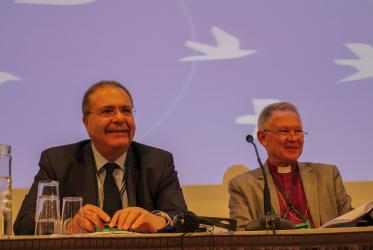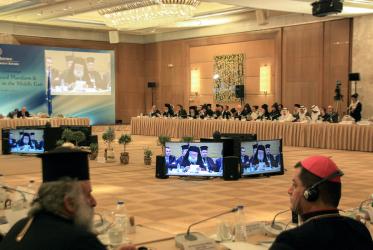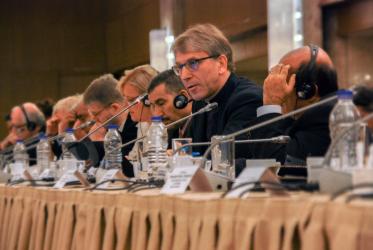Displaying 41 - 60 of 92
28 November 2016
Out of the darkness
28 November 2016
Paralyzed by shock
28 November 2016
Driven out
28 November 2016
Is there hope for the Middle East?
25 June 2016
Fleeing from – rather than to – a place
10 February 2016
WCC urges support for social media campaign to end Syria crisis
25 January 2016
One refugee’s story: from Syria to France
07 January 2016
Armed forces no solution, says Evangelical Church in Germany
10 December 2015
“European solidarity must be strengthened”
29 October 2015
International conference addresses challenges in the Middle East
22 October 2015
Local and global work saves lives
22 October 2015
WCC calls for an end to foreign military interventions in Syria
12 October 2015







